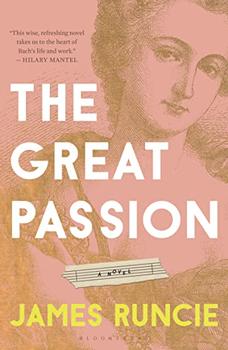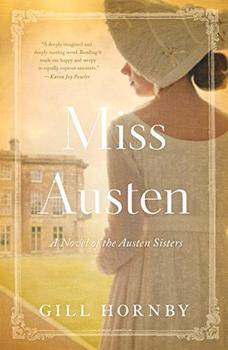Summary | Excerpt | Reading Guide | Reviews | Beyond the book | Read-Alikes | Genres & Themes | Author Bio

Gutenberg's Apprentice is my favorite kind of historical novel, the kind that inspires me to stop every couple of chapters and think. Alix Christie's extraordinary book made me want to ponder the tremendous ruthlessness of History (capital H intended), how it takes no prisoners when its gears begin to churn out global change. We see it today in so many ways, but seldom reflect on the individual lives of those who were chosen to mete out those changes. Changes without which nothing in our daily lives would be possible. I mean it. Nothing.
Told via the recollections of Peter Schoeffer who, at twenty-something, has learned the craft of being a scribe, the novel begins when he is in Paris and his foster father Johann Fust calls him home. The seen-better-days city of Meinz, Germany all but repulses Peter, but he's certain Fust wouldn't ask him to come without good reason. Peter's expectation of a temporary visit is shattered when Fust insists he go to work for a crazed inventor. Worse, Peter isn't expected to use his hard earned skills as a scribe. Instead he becomes nothing more than a foundry man, slaving (quite literally) over a blazing forge day in and day out.
The inventor is Johann Gutenberg. I know. The very name sends chills up my spine too. The man to whom I owe my livelihood. My gratitude leaves me breathless. He is a man to whom Fust has pledged, not just a fortune in startup capital, but also the labors of his foster son. The investment is intended to fund construction of a machine that will reshape and rewrite the world (no hyperbole). It is a machine that will put Peter and his fellow scribes out of work. Needless to say Peter is, at once, doubtful and furious. "I see a crude and ugly copy of the best that man can do," he says. "And everything of beauty is destroyed … Everything that matters, in the praise of God - or learning - trampled." By Gutenberg's printing press, he means.
As someone who has devoted all of his young life to the creation of books with great warmth and beauty, Peter can't see any value – beyond the almighty guilder – of mass produced books. Books made easily available to everyone is one thing, mass production is quite another. And Gutenberg, here painted as a moody, remote, brooding taskmaster, is little help. Even after he and Peter make a sales call to a high Church official who promises a huge order as soon as the schism within the Catholic Church settles down, there is small consolation. After all their efforts thus far, they are still a long way from production. But when he is called upon to design and carve the hard metal letters, Peter begins to grasp the vision, feeling that this work is in fact God's work – His will.
Pretty soon, even though he is sworn to absolute secrecy lest someone preempt Guttenberg's big ta-da, Peter decides to show their work to painter Anna Pinzler whom he hopes to marry. He proudly shows her a one-off print of the first sentence of Genesis. Big mistake. The illiterate artist is scandalized.
"Anna stood entirely rigid by his side. When he glanced up, he saw a look of fear, repulsion, in her dark and slanted eyes." She says, "Then it is truly some dark evil that has overcome you.' Anna crossed herself…'Where are your hands? Your eyes? I thought we shared that touch, at least. Yet now you worship all that's hard and cold and dark.' She shook her head. 'As if the Lord could live inside a hunk of metal.'"
This is just a small taste of the resistance Gutenberg and Peter will encounter. Book lovers of the day feared a loss of intimacy and connection to the written word. Reading a book written by a human hand was so much more heartfelt, they thought. And then the process of inventing the printing press: oh, the difficulties, the delays, the broken promises, the paranoia; the ecstasy of discovery when the process seemed to actually invent itself by imbuing Guttenberg and his tiny team with insights born of hardship and rejection. If you're not thinking Bill Gates, Steve Jobs and eBooks by this stage in the book, I've missed my guess.
Christie's outstanding debut presents, in terms we can identify with, the very human toll that progress often takes. The parallels between these harbingers of the Modern Age and the by-now too familiar struggles of Western society come alive. As somebody still very fond of "real" books, I could relate, a little ashamedly, with those 15th Century luddites. This is a novel that touches the heart because, when all is said and done, it's the message not the medium that counts.
![]() This review was originally published in The BookBrowse Review in October 2014, and has been updated for the
October 2015 edition.
Click here to go to this issue.
This review was originally published in The BookBrowse Review in October 2014, and has been updated for the
October 2015 edition.
Click here to go to this issue.

If you liked Gutenberg's Apprentice, try these:

by James Runcie
Published 2023
From acclaimed bestselling author James Runcie, a meditation on grief and music, told through the story of Bach's writing of the St. Matthew Passion.

by Gill Hornby
Published 2021
For fans of Jo Baker's Longbourn, a witty, poignant novel about Cassandra Austen and her famous sister, Jane.
Your guide toexceptional books
BookBrowse seeks out and recommends the best in contemporary fiction and nonfiction—books that not only engage and entertain but also deepen our understanding of ourselves and the world around us.